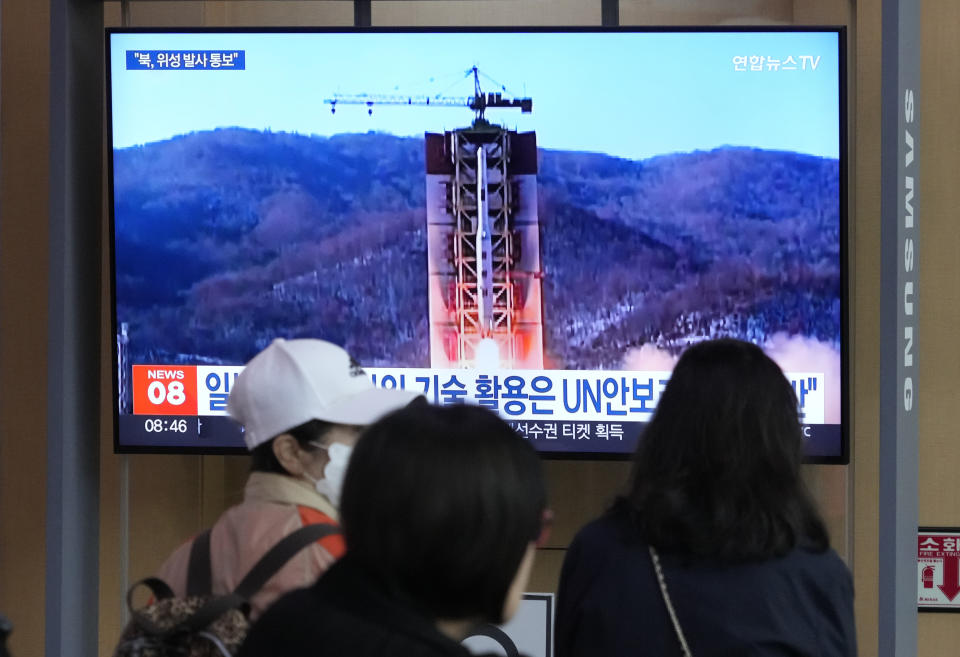North Korea Says It’s About to Launch Its First Military Satellite. Here’s What We Know So Far

A TV screen shows a file image of North Korea's rocket launch during a news program at a railway station in Seoul. Credit - Ahn Young-joon—AP Photo
Japan’s ballistic missile defense system has been put on alert after North Korea notified it of an impending satellite launch this June. The preparation also came with a warning: any projectile posing a threat to Japan’s territory will be shot down.
Every time Pyongyang wants to launch a satellite in orbit, the planet is put on edge. Back in 2012, the launch of the earth-observation satellite Kwangmyongsong-3 caused an international outcry, triggering fears that it was a cloaked missile test. The launch of its successor in 2016 earned similar global condemnation.
The fears are not misplaced. For over 60 years, North Korea has tried to beef up its nuclear program and missile capabilities. Just last year the hermit state tested a record number of projectiles, with 2023 also kicking off with a series of missile launches. A satellite launch in the coming weeks, as Pyongyang is now indicating, will not only give it an opportunity to test the country’s space rocket technology and make it a formidable military force, it will also be a violation of U.N. protocols on the use of long-range missile technology.
Read More: Tracking All of North Korea’s Missile Tests This Year So Far
North Korea’s state media released photos of Kim checking the satellite, which observers believe to be a rudimentary device capable of transmitting images. Uk Yang, a military expert at the Asan Institute for Policy Studies in Seoul, however, believes the resolution of those images is insufficient for high-quality reconnaissance.
As for the additional payload, Yang says the satellite looks small enough–he estimates it’s about 90 cm. long—and unlikely to serve any function other than reconnaissance. “If they want another function, they need to shoot another satellite,” he tells TIME.
But with much of the information coming from state media, Yang believes Pyongyang can easily lie about what they’re sending into outer space, adding that “there’s no credibility in their actions in the international sense.”
Aside from Japan, South Korea also condemned the satellite’s scheduled deployment and urged its neighbor to “withdraw its illegal launch plan immediately” or face consequences, according to a government statement.

Supreme Leader Kim Jong Un is, however, unperturbed by the global opprobrium. When Kim visited the reconnaissance satellite site on May 16, he asserted that the spacecraft was “an urgent requirement of the prevailing security environment”—alluding to the increasing presence of the U.S. in the Indo-Pacific and its improving military alliance with South Korea. After Japan reported on the launch, senior North Korean military official Ri Pyong Chol issued a statement, saying the satellite and “various reconnaissance means due to be newly tested” are crucial to responding to the “dangerous military acts of the U.S. and its vassal forces.”
But on top of improving Pyongyang’s military technology, the launch is also a “prestige project” for Kim, says Michael Raska, assistant professor at the S. Rajaratnam School of International Studies in Singapore. “He has to show the North Koreans that they’re making progress,” Raska tells TIME, adding that the launch can be seen as a “signaling of prestige that will boost Kim’s credibility internally.”

 Yahoo Sports
Yahoo Sports 